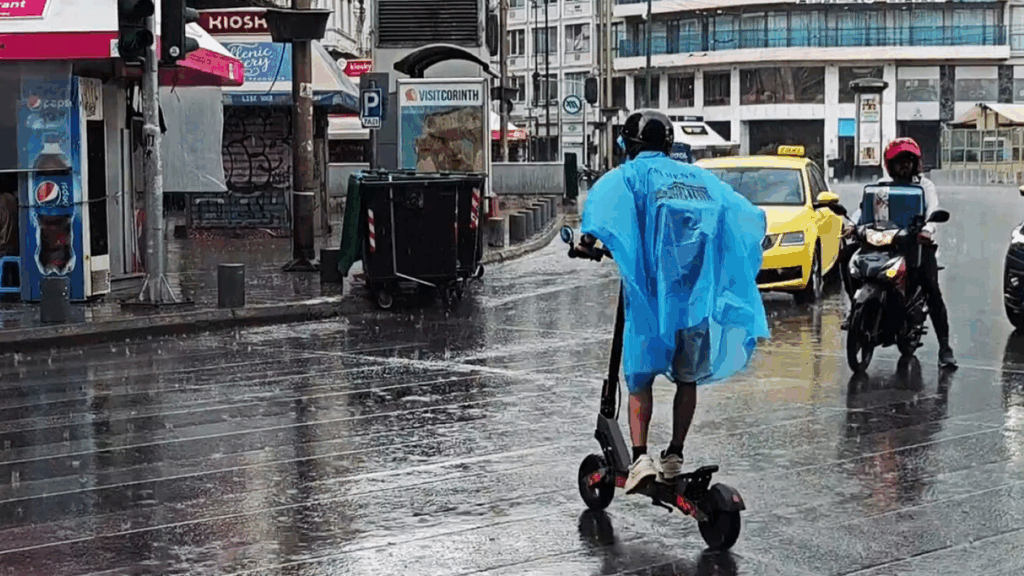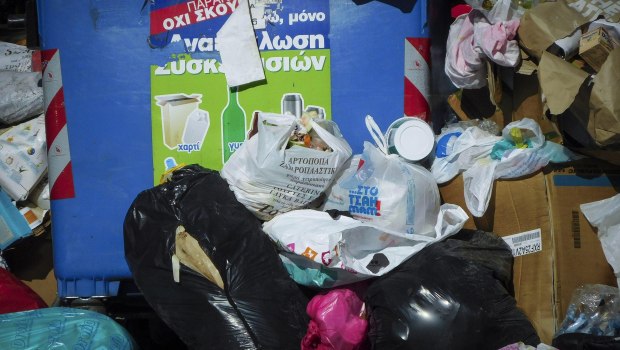New bill – Migrants accepted only with agricultural and student visa
Source: ProtoThema English
A drastic reduction in benefits and allowances for migrants, the introduction of innovative training and labor integration programs for refugees, structural changes in hosting centers, and new flexible visas for students, highly skilled professionals, and workers from third countries are expected to be promoted in the coming period by the leadership of the Ministry of Migration and Asylum. The provisions of the new bill on legal migration will be presented by the competent minister, Thanos Plevris, likely at the next Cabinet meeting so that they can be submitted to Parliament in October. The central aim is the operation of a coherent institutional framework for legal and illegal migration.
A key catalyst in achieving this ambitious goal is the full alignment of the new provisions with the measures recently voted for criminalizing the stay of illegal migrants in Greece. Official data currently show that the strict policy in the field of illegal migration is delivering results, as flows show a significant decrease, while return figures are also encouraging. Over the past month, the Ministry of Migration has carried out more than 1,000 deportations, a fact that is leading more and more EU countries to adopt the doctrine of strict but fair migration policy consistently applied by the Greek government since 2019. Under these conditions, the next challenge set by the Prime Minister and the Migration Minister concerns strengthening legal migration routes and the labor integration of those entitled to and granted asylum.
Restructuring of structures
According to information, Mr. Plevris’ new plan for legal migration aims at better utilization of refugee potential and more effective integration into the labor market by redirecting funds from subsidy programs to training activities. The ambitious design foresees splitting hosting structures into two main categories.
The first category will include facilities hosting exclusively applicants with a refugee profile, thus with strong chances of receiving asylum, while the rest will house illegal migrants awaiting deportation. Ministry sources explain that reception service staff can make the initial screening, as they have increased experience and with 80–90% accuracy can assess whether applicants meet asylum criteria. In hosting centers for people with refugee profiles, there will also be recording of possible skills, knowledge, and work experience.
Subsequently, the plan foresees that individuals granted asylum will not live exclusively on allowances provided by the state and NGOs but will participate in training programs to acquire professional skills and be directly integrated into employment sectors with high labor demand. “We are changing the philosophy of programs for those entitled to international protection so that migrants quickly enter the labor market. They will be given the opportunity, every tool, and support to enter the job market that has great needs. Whoever gets asylum and stays in Greece will not live on taxpayers’ money, they will work,” Mr. Plevris stated to THEMA.

Acceleration
At the same time, the new ministry leadership is expected to promote provisions to remove bureaucratic obstacles blocking the renewal of residence permits. According to information, about 290,000 migrant applications are pending at competent offices, most of them residing and working in the country for over 10 years. The third chapter of the bill focuses on the policy of attracting workers from third countries for a specific period, as the current framework has been paralyzed by bureaucratic hurdles and delays. The acceleration measures will mainly concern consular authorities and relevant bilateral agreements.
The central aim is to strengthen Greece’s key diplomatic missions in countries that can provide workforce, in order to achieve the best possible selection of seasonal workers. One of the ministry’s ambitious goals is to reverse migration flows so that there is a positive balance of legal versus illegal arrivals. “There will be special provisions in new bilateral agreements to provide incentives to third countries to strengthen legal migration routes and at the same time accept the return of illegal migrants from Greece,” a senior ministry source said.
At the same time, a radical expansion of the visa framework is being planned, with the introduction of new permits (for studies, medical services, high specialization, targeted skills) to be issued through immediate and flexible procedures. According to information, ministry officials estimate that the operation of non-state universities in Greece will sharply increase applications for student visas. For this reason, they plan to issue the relevant permits through a simple procedure, similar to that used for tourist visas. These visas will cover the entire duration of studies, without the need for renewal, as is currently the case.
Permits for highly skilled professionals in high technology will be of very long duration, while a fast-track procedure will be foreseen for visas related to strategic investments (e.g., Hellenikon, pharmaceuticals, defense industry, etc.). In addition, interventions are expected in consular authorities to accelerate the issuance of residence permits for workers. Especially for countries from which the majority of illegal migrants originate (e.g., Pakistan, Bangladesh, Egypt), it will be stipulated that the flow rate of legal migration will depend on the number of illegals they agree to accept back.
Reduction of flows and increase of departures
Meanwhile, data collected by the ministry’s competent services show a sharp reduction in migration flows across all Aegean islands, attributed to the deterrent framework created by legislative measures tightening migration policy and daily border patrols by Coast Guard officers.
Especially in Crete, arrivals decreased by 81%, mainly due to the Plevris amendment suspending asylum for applicants entering from the coasts of Libya and North Africa. From 3,624 people who entered illegally last July, the number dropped to 689 in August, while in the first ten days of September arrivals were only 75. In Lesvos, illegal arrivals fell by 57%, from 556 in August 2024 to 238 this year. In Chios, from 742 illegal migrants last year the number fell to 400 this year, a 46% decrease. In Samos, from 1,045 illegal arrivals in 2024 there were 590 this year, down 44%. Likewise, in the Dodecanese, the reduction of illegal flows compared to the same period last year reached 71% (3,059 in 2024 versus 878 in 2025).
It should be noted that ministry officials expect in the coming period further reduction in flows and increase in voluntary departures, as the new provisions criminalizing the stay of individuals denied asylum have already come into effect. Specifically, last Friday a circular was issued calling on authorities to inform all hosted individuals in facilities “about the new legislative framework and, above all, that in case their asylum application is rejected they face 24 months administrative detention and a prison sentence from 2 to 5 years, with the only way to avoid serving being voluntary return to their homeland.”
25,000 workers every year
According to estimates by the Ministry of Migration, the new Plevris doctrine of reallocating funds from a welfare approach to a labor training strategy can immediately supply professional sectors with 100,000–120,000 workforce. This pool can be replenished with up to 25,000 refugees per year, plus those arriving in Greece through new legal migration routes. Based on official data, today in Greece legally reside 508,499 third-country nationals and 127,000 beneficiaries of international protection (permanent and temporary).
The majority of legal migrants (total 508,499) come from Albania (268,964), followed by China (38,596), Pakistan (26,722), Georgia (19,678), and Bangladesh (16,498). From 2021 to July 2025, 1,039,787 residence permit applications were submitted (382,626 initial grants and 657,161 renewals). Of these, 671,656 permits were issued, 79,444 rejected, 1,156 revoked, while 287,531 remain pending. From July 2024 to July 2025 alone, there were 276,954 applications (115,373 initial and 161,581 renewals).
On the other hand, exact data on the number of illegally residing migrants is lacking. Ministry estimates suggest they do not exceed 70,000. They base this estimate on the fact that the Keridis amendment, which allowed illegals to legalize if they proved three years of residence in the country, led about 40,000 migrants to apply. Under the new framework, this category of migrants has two options: voluntary departure or imprisonment.

Thanos Plevris in THEMA
“Whoever gets asylum and stays in Greece will not live on taxpayers’ money, they will work.”
“We are changing the philosophy of programs for those entitled to international protection so that migrants quickly enter the labor market. They will be given the opportunity, every tool, and support to enter the job market that has great needs. Whoever got asylum and stays in Greece will not live on taxpayers’ money, they will work.”
Ask me anything
Explore related questions
The original article: belongs to ProtoThema English .




